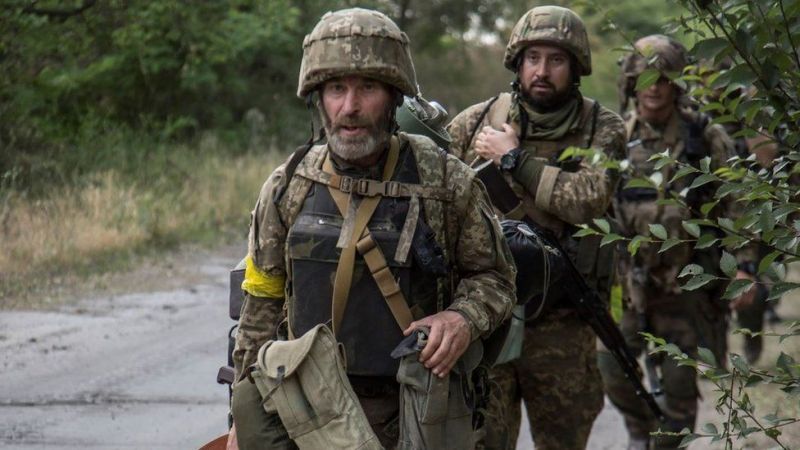- Malaysia military helicopters crash, killing 10 crews |
- Nine injured in Russian drone attack on Odesa |
- 3M children suffering brunt of Haitian gang violence - UNICEF |
- Taiwan hit by strongest quakes, reaching 6.3 magnitude |
- BUET dissolves its campus journalists' club |
Russia has full control of eastern city Severodonetsk, Ukraine says

Ukrainian troops resisted a massive Russian offensive for weeks in Severodonetsk
Russian forces are now in control of the battered city of Severodonetsk in eastern Ukraine, its mayor says.
"The Russians have fully occupied Severodonetsk, our military has retreated to more prepared positions," Oleksandr Stryuk told Ukrainian TV.
Weeks of heavy Russian shelling have reduced the city mostly to ruins.
Many civilians have been sheltering at the vast Azot chemical plant, but Mr Stryuk said the only way out now was via Russian-held territory.
Pro-Russian rebels allied with the Russian army say they have moved into parts of Lysychansk, the city facing Severodonetsk across the Siversky Donets river. But Ukrainian officials have not confirmed that.
Severodonetsk, once home some 100,000 people, has seen bitter street fighting and most of its residents have fled.
Taking the city means Russia now controls nearly all of Luhansk region and much of neighbouring Donetsk - the two regions that form the industrial Donbas.
Russia launched a barrage of missiles at targets in the north and west of Ukraine overnight and Saturday.
The Ukrainian military says the attacks included - for the first time - missiles fired from Tu-22 bombers flying over Belarus to the north.
On Saturday Russian President Vladimir Putin met his Belarusian ally Alexander Lukashenko in St Petersburg and pledged to deliver nuclear-capable Iskander M missiles to Belarus.
Russia's 24 February invasion of Ukraine included Russian armoured columns sent in from Belarus. Iskander missiles have been deployed previously in Kaliningrad, a small Russian Baltic territory between Nato members Lithuania and Poland. They have a range of up to 500km (300 miles).
Mr Putin told President Lukashenko "in the next few months we'll give Belarus tactical Iskander M missile complexes, which can fire ballistic and cruise missiles, both conventional and nuclear types", Russian RBC news reported.
Mr Lukashenko asked for Russia to make Belarusian warplanes nuclear-capable, and Mr Putin said Belarusian Su-25 fighter jets would be upgraded.
Russian cruise missiles were also fired from ships in the Black Sea on Saturday, Ukraine's military said. Missiles struck military installations in the Lviv region, in the west, and Zhytomyr, north-west Ukraine, though a few were shot down, the reports said.
Ukraine also reported a heavy rocket strike on Desna, a village near Chernihiv in the north.
At the St Petersburg meeting, Mr Lukashenko also lashed out at Lithuania's decision to block Russia's rail transit of some goods to Kaliningrad via its territory. The Belarusian leader said Lithuania's move was "a sort of declaration of war" and "unacceptable".
Steel and some other Russian goods come under the EU sanctions imposed over Russia's invasion of Ukraine. Lithuania says its measures affect only 1% of the normal Russian goods transit on the route, dismissing Russian talk of a "blockade" of Kaliningrad, reports BBC.

